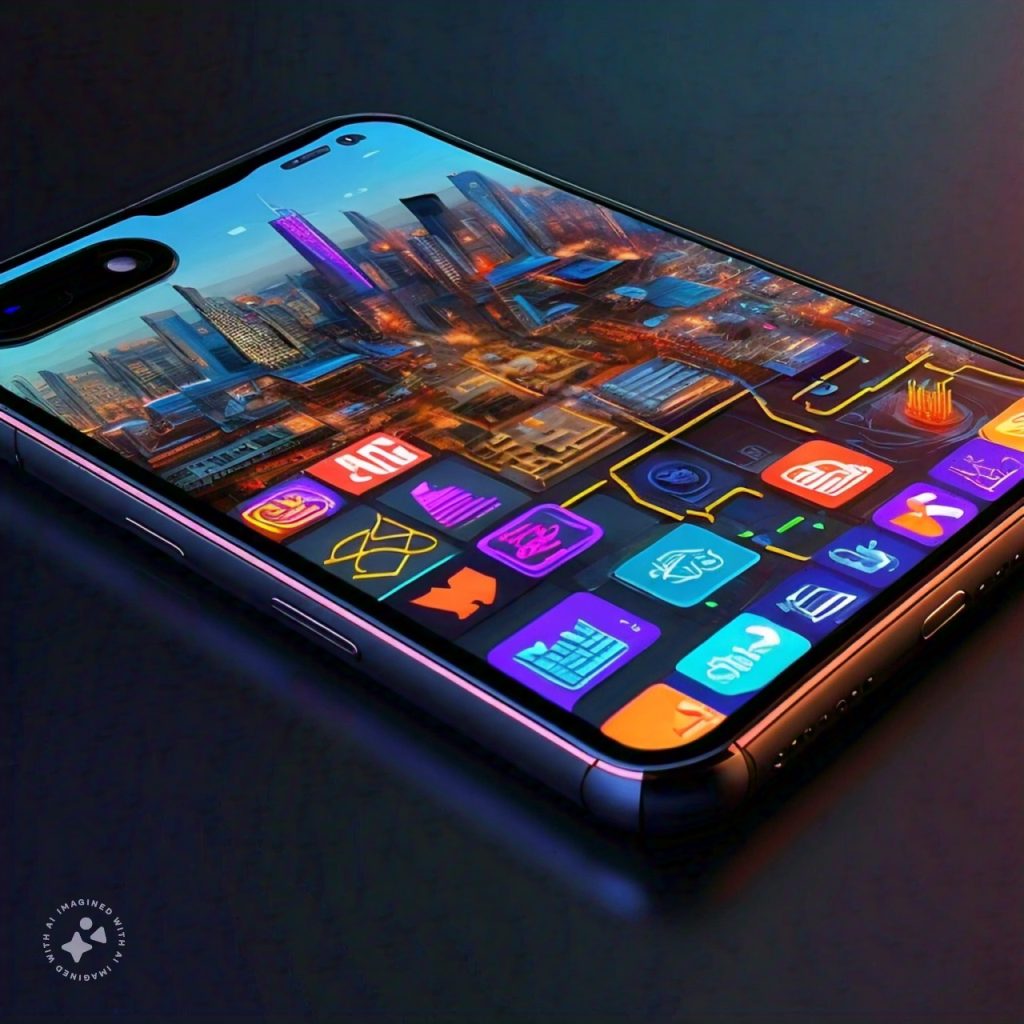Introduction:
In the dynamic realm of mobile technology, the trajectory of innovation knows no bounds. Over the past decade, the mobile app industry has witnessed a meteoric rise, catalyzing a paradigm shift in how we interact with digital content and services. As technological advancements continue to redefine the digital landscape. The future of mobile apps stands poised on the brink of unprecedented transformation. In this comprehensive guide, we embark on a journey to unravel the emerging technologies and trends that will shape the mobile app industry in the years to come.
Emerging Technologies Reshaping the Mobile App Landscape:
-
Artificial Intelligence (AI) Revolutionizing User Experiences:
Artificial Intelligence stands as the cornerstone of the next-generation mobile apps, imbuing them with the ability to comprehend user behavior, preferences, and patterns. By harnessing AI algorithms, mobile apps can deliver hyper-personalized experiences, predictive maintenance, and bolstered security protocols, thereby elevating user satisfaction to unparalleled heights.
-
Augmented Reality (AR) Redefining Interactivity:
Augmented Reality emerges as a disruptive force, redefining the very fabric of mobile app interactions. By seamlessly overlaying digital elements onto the physical world, AR technology unlocks a realm of immersive experiences, revolutionizing gaming, retail, and educational applications with unparalleled levels of engagement and innovation.
-
Blockchain: Pioneering Trust and Security:
Blockchain technology emerges as a game-changer in the realm of mobile app security, furnishing a decentralized, transparent, and tamper-proof framework. By leveraging blockchain infrastructure, mobile apps ensure data privacy, integrity, and facilitate trustless transactions, instilling confidence among users and stakeholders alike.
-
Internet of Things (IoT) Bridging the Digital-Physical Divide:
The proliferation of Internet of Things (IoT) facilitates seamless integration between mobile apps and the physical world, heralding an era of interconnected smart devices and environments. From smart homes to industrial automation, IoT-enabled mobile apps empower users with unprecedented levels of convenience, efficiency, and control over their surroundings.
-
5G Networks: Unleashing Unprecedented Connectivity:
The advent of 5G networks heralds a new era of connectivity, promising lightning-fast data speeds, minimal latency, and ubiquitous connectivity. This transformative leap in network technology paves the way for seamless video streaming, immersive gaming experiences, and a plethora of data-intensive applications that redefine the boundaries of mobile connectivity.
Trends Shaping the Future of Mobile Apps:
-
Cross-Platform Development: Embracing Versatility and Accessibility:
The burgeoning diversity of platforms and devices underscores the importance of cross-platform development strategies. By adopting cross-platform frameworks like React Native and Flutter, developers can create apps that seamlessly traverse across diverse operating systems, ensuring maximum reach and accessibility for their target audience.
-
Progressive Web Apps (PWAs): Blurring the Lines Between Web and Mobile:
Progressive Web Apps (PWAs) emerge as a disruptive force, bridging the gap between traditional web applications and native mobile experiences. By delivering fast, responsive, and engaging user experiences directly within web browsers, PWAs redefine the boundaries of digital interaction, offering a seamless fusion of web and mobile app functionalities.
-
Mobile-First Development: Prioritizing User-Centric Experiences:
In an era dominated by mobile devices, the ethos of mobile-first development reigns supreme. By prioritizing the optimization of user experiences for mobile platforms, developers can ensure that their apps resonate with the preferences and expectations of modern-day consumers, fostering heightened engagement and loyalty.
-
Voice-Activated Apps: Embracing Natural Language Interfaces:
The proliferation of voice assistants like Siri, Alexa, and Google Assistant heralds a paradigm shift in app interactions. Paving the way for voice-activated applications. By embracing natural language processing technologies, voice-activated apps offer users a seamless and intuitive means of interaction, revolutionizing the way we engage with digital content and services.
-
Gamification and Social Apps: Fostering Community and Engagement:
The integration of gamification elements and social features emerges as a potent strategy for enhancing user engagement and retention. By infusing elements of competition, collaboration, and social interaction, mobile apps create immersive experiences that resonate deeply with users, fostering vibrant communities and driving sustained user participation.
-
Mobile Payments and Commerce: Redefining Transactions in the Digital Era:
The burgeoning popularity of mobile payments and commerce signifies a monumental shift in consumer behavior and preferences. By facilitating seamless in-app transactions and purchases, mobile apps empower. Users with unparalleled convenience and flexibility, revolutionizing the way we shop, bank, and conduct financial transactions in the digital age.
-
Security and Privacy: Safeguarding User Trust in a Hyperconnected World:
In an era fraught with concerns over data privacy and security breaches. Mobile apps must prioritize robust security measures to instill trust and confidence among users. By implementing stringent encryption protocols, multi-factor authentication mechanisms, and proactive security measures. Mobile apps can mitigate risks and safeguard sensitive user data from malicious threats.
Conclusion: Navigating the Mobile App Frontier with Confidence and Innovation
As we stand on the cusp of a new era in mobile technology. The future of mobile apps beckons with boundless opportunities and challenges. By embracing emerging technologies and trends, developers, businesses, and users alike can chart a course towards digital transformation. Redefining the boundaries of innovation and shaping the mobile app landscape for generations to come. Let us embark on this transformative journey together, harnessing the power of technology to create experiences that inspire, engage, and enrich the lives of users across the globe.
Expanding Further:
- Mobile App Analytics and Performance Optimization: Maximizing App Efficiency and Effectiveness
- Mobile App Marketing Strategies: Amplifying Reach and Visibility in a Crowded Marketplace
- Mobile App Development Frameworks and Tools: Navigating the Landscape of Development Options
- Mobile App Design Principles: Crafting Intuitive and Aesthetic User Interfaces for Enhanced Engagement
- Mobile App Testing and Quality Assurance: Ensuring Seamless Functionality and User Experience Across Platforms
- Mobile App Maintenance and Updates: Sustaining Long-Term Relevance and Performance
- Mobile App Monetization Strategies: Exploring Revenue Models and Monetization Opportunities in the Mobile Ecosystem
Related Article of Owasoft:
Enhancing Mobile App Security: Best Practices and Strategies



